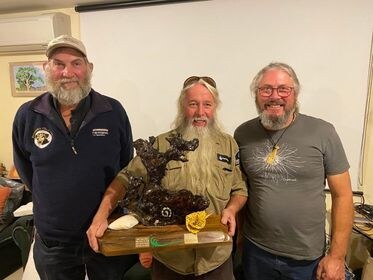Field Based STEM (Science, Technology, Engineering and Mathematics) is a programme all about getting tamariki out into the environment to appreciate their world, through field based science.
Tony Jones has been a science teacher, Head of Department (Science) and Deputy Principal. He has set up this business to support schools to apply for professional development funding through the Ministry of Education. He also organises facilitators to work with teachers to plan trips out of the classroom - exploring their environment.
We are looking for facilitators from around the country who are interested in working with schools; using their knowledge of the coast in their area. This is mainly working with teachers, but may involve accompanying teachers and pupils on field trips The facilitator does not have to be a teacher but they do need to be safe to work with young people. They do not have to be scientists - just knowledgeable about something specific in the outdoors. They do not have responsibility for students. They work with teachers and act as an expert in the field.
This work is not a job, but rather a flexible contract as needed by schools that have applied for the funding. Field Based STEM pays very well, per hour of contact time, including travel. The contract is very flexible with the facilitator and the teacher working out the hours to suit both. It would suit someone who is retired, or working part time, or even working in the area of coastal sustainability.
Initially we are looking for someone to support Orewa College in Auckland. Orewa College has several hours of funding and would like to spend some of it exploring Orewa Beach and surrounding coastal areas; assessing the coastal processes at work and best practice field work for this.
We are also getting more and more queries about support using a Mātauranga Māori perspective as part of this field based work, so this would be an added skill, but not essential. See our website for the kind of work we do.
https://field-basedstem.kiwi/
If you are interested or have any questions, please contact me.
Heather Knewstubb - [Enable JavaScript to view protected content]
 At a staff meeting amongst his colleagues at Christchurch City Council, Jason Roberts received our Pīngao & Toheroa Award.
At a staff meeting amongst his colleagues at Christchurch City Council, Jason Roberts received our Pīngao & Toheroa Award.